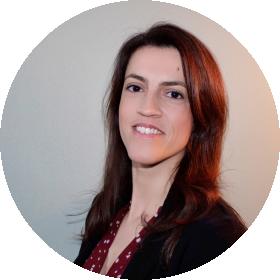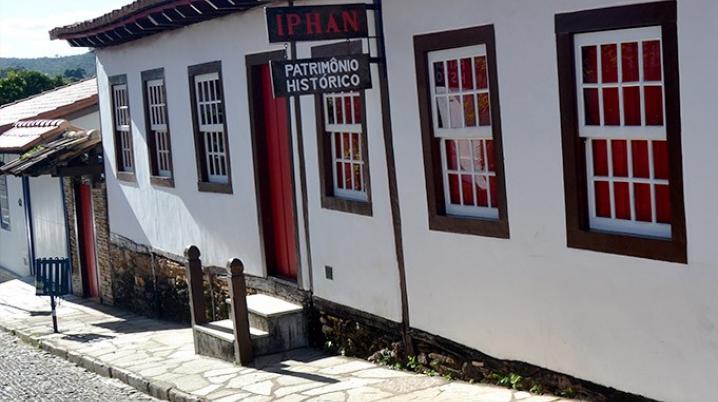


In April 2016 the then-president of the Brazilian National Institute of Historic and Artistic Heritage (IPHAN), Ms Jurema de Sousa Machado, visited the Netherlands to participate in DutchCulture’s International Visitors’ Programme. The visit’s highlight was the signing of a Memorandum of Understanding between IPHAN and the Cultural Heritage Agency of the Netherlands (RCE). Among other things, the cooperation resulted in a technical exchange programme between both institutions.
DutchCulture interviewed Beatriz Otto de Santana about her participation in the exchange programme in the Netherlands. Beatriz Otto de Santana has a background in architecture with a focus on cultural heritage management. Since 2009, she has worked as technical coordinator of IPHAN in the Brazilian State of Goiás. She previously studied in the Netherlands and her knowledge of Dutch facilitates her exchange with the RCE.
What is the aim of your visit to the Netherlands?
‘The main focus is to investigate how incentives in the form of loans and subsidies for the repurposing of underutilised buildings are distributed throughout the Netherlands. We want to understand Dutch policies on the re-designation of urban areas and interventions that give multiple uses to buildings and urban spaces, often radically changing the original use of such places. In particular, we are interested in projects associated with housing and the sustainable use of a building or an urban area, since this is a major problem in Brazil. When you invest in the historical centre only for commercial activities and do not include housing, the area will empty out at night. Taking housing into account solves very big problems in terms of commuting, the water supply, energy and public transportation.
‘This mission is part of a larger project called Projeto Recupera, which focuses on developing incentive policies and funding, and on promoting and facilitating public-private partnerships that are strategic for Brazil’s development and for the preservation of its cultural heritage. Therefore, the experiences that have been identified here in the Netherlands are of interest for Brazil but they need to be adapted to our reality.’
Could you elaborate on what you will be doing in the coming months?
“We have a workplan for these three months. It’s actually part of a larger plan that is not only for now but for the international cooperation agreement that was made with the Dutch Cultural Heritage Agency (RCE). There are three components to the plan for these three months. The first is the outcome of my mission here. The second is a workshop on cultural landscapes that Brazil will organise for the RCE, since they are interested in seeing how we work with this category of heritage. The third is a publication of the results of the first two components.
‘In this first part of my mission here, I have five main tasks. One of these is to investigate the parallel legislation on heritage in Brazil and in the Netherlands. In Brazil we have a very wide array of laws which, if they are well articulated, can provide interesting results for what we would like to achieve. So we made a selection of Brazilian laws that deal with cultural heritage, urban and housing policies and tourism. The idea of this first task is to seek the equivalent Dutch legislation to see to what extent our own laws would already solve our problems. And to find out if it would only be a matter of how to associate them or if the inclusion or regulation of a particular law is necessary. Other tasks will focus on mapping specific Dutch laws, such as on the protection of cultural heritage, or subsidy policies in the Netherlands. A further concern is the various private-public partnerships that take place here, such as the Restarautiefonds, BOEi and other organisations that are private but have public incentives to work in the preservation of heritage.’
Given the instability of Brazil right now, what are the main challenges IPHAN faces?
‘IPHAN and the federal government as a whole had a very large budget until 2010/2011 and from then on it has only been reduced. Currently we have no budget to realise all of our objectives and we also lack personnel but there is no provision for hiring. So we have to do the best with what we have. Part of this is implementing what has been generated over the years, which is a national cultural system. This means strengthening states and municipalities so they can assume their responsibilities in managing cultural heritage and culture as a whole so that IPHAN can focus more on its main function, which is to be a managing and coordinating institution.’
Do you think your expectations will be met in three months?
‘I think that the work will not end with this. These three months will be critical for me to have practical experience of how the Dutch policy of cultural heritage preservation functions in the Netherlands. And for me to make contacts, interviews and collect material. But finalising these tasks and applying the knowledge gained here to the Projeto Recupera will take longer. So our expectation is that there will be continuity.’
Interview & text by: Clara Casagrande